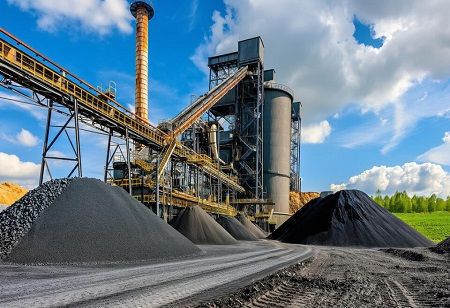
Centre Approves 5 Carbon Capture and Utilisation Testbed Setups
- The Centre has approved five carbon capture and utilisation (CCU) testbeds in the cement sector to support India's net zero goals.
- These projects will convert industrial CO₂ emissions into useful products via public-private partnerships.
- The initiative aims to future-proof industries against EU’s Carbon Border Adjustment Mechanism (CBAM).
In a groundbreaking national effort to tackle industrial carbon emissions, the Centre has sanctioned the establishment of five carbon capture and utilisation (CCU) testbeds within the cement industry that will demonstrate the 'net zero' decarbonisation strategies for industries via the CCU method.
The CCU is crucial in difficult-to-transform industries such as cement, steel, power, oil & natural gas, and chemicals & fertilisers for decreasing emissions by capturing carbon dioxide from industrial activities and turning it into valuable products like synthetic fuels, urea, soda, ash, chemicals, food-grade CO2, or concrete aggregates.
The focus of the initiative, introduced by the ministry of science and technology, will be on creating integrated units for CO2 capture and CO2 utilization within an industrial framework via an innovative public-private partnership (PPP) funding model.
Also Read: From Foundry To Foundation: Forging Excellence
“The move will go a long way in not only meeting India’s climate action pledges - Nationally Determined Contribution (NDC) - under the Paris Agreement but also in achieving the country’s 2070 ‘net zero’ (carbon neutrality) goal,” said an official.
The National Council for Cement and Building Materials in Ballabhgarh, Haryana will set up five testbeds for translational R&D in industry-academia collaboration with JK Cement; IIT Kanpur with JSW Cement; IIT Bombay with Dalmia Cement; CSIR-IIP, IIT Tirupati and IISc with JSW Cement; and IIT Madras, BITS Pilani, Goa with Ultratech Cement.
“Such move will also make these industries future ready ahead of the European Union’s proposed Carbon Border Adjustment Mechanism (CBAM), which is to be implemented from next year,” said the official.
CBAM serves as a mechanism to assign a price to carbon-heavy products, such as iron and steel, aluminum, and cement by implementing a border tax. India, however, opposes the EU's action as it will impose a tariff burden on products from developing nations and affect their trade negatively.

.jpg)